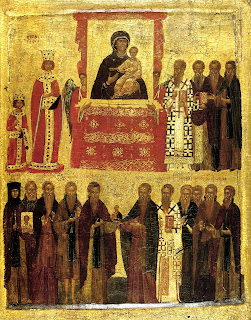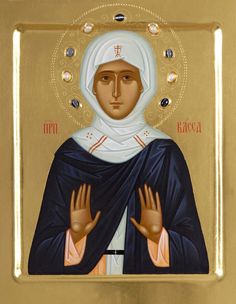In the state of Washington, and in many other places, legislatures have acted cruelly toward Christian Churches that have the sacrament of confession. Also called reconciliation, the sacredness of this sacrament has been guarded as a matter so holy that any priest daring to break is latae sententiae excommunicated under Church law. While these laws are set up with a noble goal of protecting children from molesters, these noble goals open up more problems with their solutions than they actually fix. But I think it's actually important that people understand what goes on in the sacrament of confession when a penitent approaches with fear and with faith.
In the sacrament of confession, we confess our sins committed after baptism. While most focus exclusively on mortal sins, any sin can be confessed, even temptations suffered. The priest is bound to the obligation of secrecy. This goes back to the event Noah and his sons in Genesis 9:21-27 where Ham, Shem, and Japeth saw their father naked. While Shem and Japeth covered him, Ham refused to do so. Allowing his father to be embarrassed in his nakedness, Ham received a curse of the highest censure from God. It wasn't a racial curse, it was a curse on all who refuse to cover their brother's nakedness. In the medieval decretals of Gratian, we read a severe reprimand of any priest who breaks what is called the seal of confession: "'Let the priest who dares to make known the sins of his penitent be deposed', and he goes on to say that the violator of this law should be made a life-long, ignominious wanderer.'" This is because our sins that we confess and are given mercy to, the only one who continues to care about them afterward, is Satan. The Accuser who wants to make us revel in our sins and be bound to our despair.
It is a form of the sin of detraction for a priest to break the seal of confession. The seal of confession is guaranteed by the Holy Spirit and for a priest to break this seal, it is a grave sin. It is a grave sin for a layman to listen in on his brother's confession. These are sins of detraction. We live in a modern culture of democracy where politicians find themselves so ugly that the only way they ascend to the top is by presenting them as the least ugliest. So they present their opponents as uglier. They highlight their opponents' sins in the form of negative campaigning because they have no accomplishments of their own. Living in this culture of detraction, I fear many Christians have forgotten what the sin of detraction even is or are even aware that it is a sin. But highlighting other people's sins in public brings upon themselves the curse of Ham. We're used to public trials, lawsuits, smear campaigns, that many people don't even look at these as sins anymore. No wonder why we no longer live in the realm of charity! Our society punts charity to the side and endorses sins against charity. If you don't cooperate in these sins, you're viewed as almost alien.
And that's why so much emphasis is placed on the seal of confession. The Church is not protecting child molesters or sex abusers by honoring the seal of confession. They are guarding the penitent who has sought out the grace and aid of Our Lord to flea from his sins. In the sacrament of confession, we are unbound from the chains of sin that the Devil has placed on us. And these laws targeting the seal of confession are an assault on the essence and nature of the sacrament. These laws would relegate the sacrament of confession to a matter of dubiousness. Am I really receiving grace or will the priest report me to my friends as he already takes this sacrament so lightly to begin with and cares nothing for the serious nature of it? Am I going to be bound continually to this sin I seek to free myself from? These laws do more harm to the seal of confession. In confession, the letter of the law is not what reigns.
Theologically, these laws are an odious assault on grace and true charity. While we should protect children and the abused from child molesters and murderers and assailants, the sacrament of confession is not the letter of the law of the State nor is the Church the handmaiden of the State to use her sacraments as a means for "catching bad guys". In many instances of confession, the priest sits on one side of a booth separated from the penitent who speaks through a grate. How would most priests, who hear thousands of confessions a year, hundreds a week, even know who is confessing to them? How would the State even know what a priest has heard in a confession unless a State agent sneaks in and listens in on a confession? Aside from having a twisted view on theology, the State would have to become thuggish in order to even properly enforce this law.
While many are praising this law as protecting children from abusers, the reality is that the nature of this law attempts to twist the Church into becoming a police agent for the purposes of the State, it assaults the nature of confession, it encourages the sin of detraction as a virtue, and it has no real way of being enforced as the nature of the sacrament is entirely secret, often times anonymous. Are those defending the seal though guilty of defending child molesters then? I want to be clear on this as I have been falsely accused of not caring about children myself. The answer is: NO! The answer is "no" because it's about defending what the nature of the Church is and what the nature of confession is. We live in a world where people want to storm the Church and violate the sanctuary. Whether it's the State breaking in and capturing immigrants or its the State breaking in and intruding upon confession, the State is in violation of the sacred. Far from defending child molesters, and there are many other ways to bring justice to those that the State could pursue, Christians defending the sacrament of confession are only doing that and nothing more. Confession is not the place to "catch bad guys". It's the place to offer spiritual instruction so that wolves may become sheep.









_-_stained_glass,_St._Helen,_detail.jpg)






